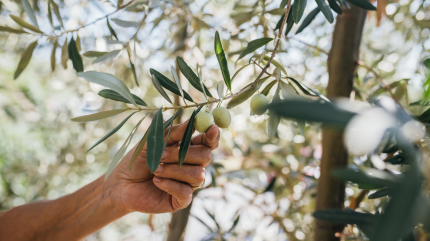
A UK media outlet has reported that olive oil fraud and mislabelling cases have hit a record high in the EU.
The Guardian newspaper, citing data released to it under freedom of information laws, reported today (29 July) that there were 50 potential cases in the first three months of this year, compared to just 15 in the first quarter of 2018.

Discover B2B Marketing That Performs
Combine business intelligence and editorial excellence to reach engaged professionals across 36 leading media platforms.
Its article blamed rising olive oil costs for the emergence of what it calls a “parallel market”.
The cost of olive oil has more than tripled in the last few years with production hit by severe droughts in growing areas and rampant supply chain inflation.
While inflation pressures have eased, there is no sign of prices normalising anytime soon.
Spain, which produces around 50% of the world’s olive oil, removed VAT on the product last month in an attempt to come to the aid of the beleaguered industry and to keep prices down.

US Tariffs are shifting - will you react or anticipate?
Don’t let policy changes catch you off guard. Stay proactive with real-time data and expert analysis.
By GlobalDataThe Guardian‘s report said that as the price of oil has spiked, so has the number of “cross-border EU notifications”, which include mislabelling, potential fraud, and safety cases involving contaminated oils.
However, the newspaper cautioned the cases are only those that have been detected and reported by member states to the EU directorate general for health.
“The figure omits domestic cases and the true scale of the fraud is probably much higher,” it said.
The data it has collected show that of the 182 olive oil fraud and non-compliance notifications sent to the EU since the start of 2023, 54 related to products from Italy, 41 from Spain and 39 from Greece.
The incident reports included oils contaminated with unauthorised substances such as pesticides and cases where extra virgin olive oil was judged to be adulterated, for example by mixing it with poorer or cheaper quality oils.
Defending its conformity checking systems, a European Commission spokesperson suggested to the newspaper that the higher reported number of notifications are “proof of better exchanges of member states’ competent authorities and their vigilance towards fraud in the agrifood chain”.
The EU produces around 67% of the world’s olive oil.





